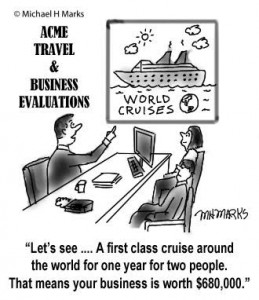As we Exit 2016, Time to think of Exit Planning
Contrary to common belief, you have to start thinking of planning exiting your business several years in advance. And even if you do not want to exit the business for many years to come, we strongly advise business owners to think about exit planning.
Why?
One of the reasons you do this is to improve the way you run the business so that you can improve the value of your business. Even if you have no intention of selling, the steps that you take in running your business better have other benefits – It helps improve your cash flow, allows you to have more money in your pocket, and most importantly, it will give you more time for you and your family and decrease the stress of running the business.
How?
Value Builder Platform identified eight factors that influence the value of the business. One of the important factors is that you do not run your business using “Hub and Spoke” model. This model is very common in the airline industry where all the flights of an airline converge at one hub before going to their destinations. Whereas there is value for this in the airline industry, many entrepreneurs, and small business owners run their businesses so that they become the “hub”. Everyone comes to them for advice and sign-offs and all decisions, big and small, are made by them. By promoting other people in your organization to take up most of these responsibilities and building a management team. you become less important and you have less stress and more time.
For more on how Value Builder Platform can help you run your business better, please visit this page and take a 13-minute survey to get your Free Value Builder score.
Here is to a less stressful and more productive 2017!
Talk to you soon.
Yatin B. Thakore



